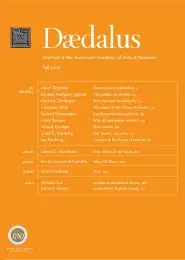Why do individuals matter?
There is an unresolved and generally unnoticed contradiction in a conception of the person often associated with the Enlightenment. The conception incorporates two commitments that, while they seem to support each other, can serve only to undermine each other. The first is a commitment to the moral importance of the individual human being. The second is a commitment to the moral importance of rationality.
It does seem that these two commitments should stand and fall together. In fact, they may seem barely distinct from one another. When we consider the first and ask what sets individual human beings apart as having a kind of moral importance not shared by other animals (or mere things), the most salient answer seems to be that only human beings are persons. What sets them apart as persons is their capacity to engage one another in distinctively interpersonal ways, such as conversation, argument, criticism, moral evaluation, and exchanging promises and contracting with one another. Since this obviously requires rational capacities, it does seem that the second commitment, to the moral importance of rationality, follows upon the first. And the converse would seem to hold as well. If rationality is morally important then so is the human being. For human beings are the only things known to possess the rational capacities required for personhood. (I am simply going to set aside the contested cases of God, angels, and rational automata.)
Why, then, are these two commitments incompatible? The source of the difficulty lies in an implicit assumption about the nature of the individual. Key Enlightenment thinkers–Kant prominently among them–took for granted that personhood is a unique property of individual human beings. But it isn’t so. A number of human beings may together constitute a single ‘group person,’ and an individual human being may be the site of multiple persons.
Although it may be said that these possibilities have never been realized in fact, they have certainly been contemplated in philosophy and literature. For example, the group person bears a resemblance to Rousseau’s moi commun, while Dr. Jekyll and Mr. Hyde are the most famous fictional case of multiple persons. And it is easy to imagine such cases because they are closely related to some real-life phenomena. Whenever human beings engage in joint endeavors, they achieve in degree the kind of unity characteristic of the individual person. And when human beings suffer from certain dissociative disorders, they may manifest multiple centers of such unity.
. . .
